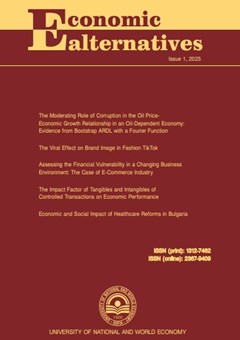Impact of Housing Prices on the Standard of Living of the Population in the Provinces of the Republic of Bulgaria
Authors: Nikolay Stoenchev, Yana Hrischeva
Abstract
The rapidly rising housing prices over the past few years in Bulgaria have raised concerns about the situation with the standard of living of large groups of the country’s population. Income differentiation and the purchase of housing by foreign citizens or by Bulgarians living abroad creates the illusion that housing provision levels are high and that there is enough housing space for all those in need. Basically, however, a large part of the homes are uninhabitable because they tend to be located in settlements with a declining population or were purchased for the purpose of investment and/or as a measure of protection against inflation. This study establishes the existence of a high negative correlation coefficient between housing prices and the population’s standard of living, when measured on the basis of nine objective indicators, united in the form of complex criteria. Two statistical methods were experimented to get to a general estimate of the standard of living based on the selected indicators, and eventually the better one was used. Regression analysis was used to assess the direction, shape and strength of the relationship between the price levels and the standard of living. Conclusions and recommendations were formulated regarding the need to urgently support young and socially weak families with housing from the State or Municipal Housing Stock/available housing so that they might successfully perform their reproductive functions and maintain their standard of living at an acceptable level. What was used for the purposes of this study were comprehensive sets of statistical information by provinces from the National Statistical Institute website and statistical methods applied using the software products SPSS and Excel. The obtained results are useful for Governmental and Local Government Bodies.

